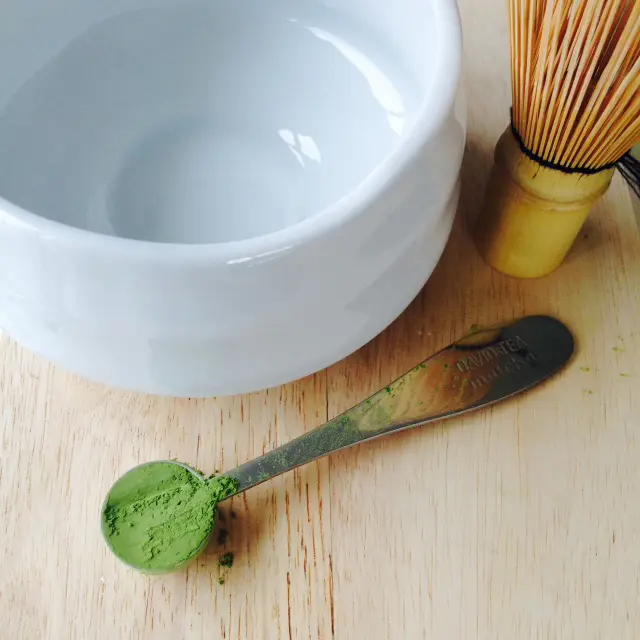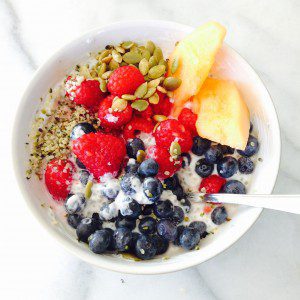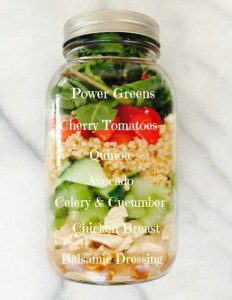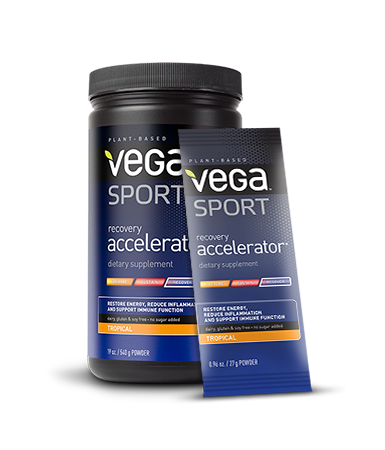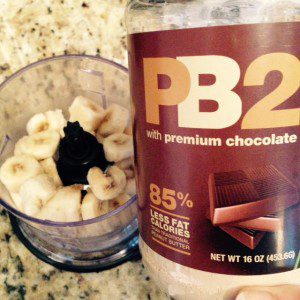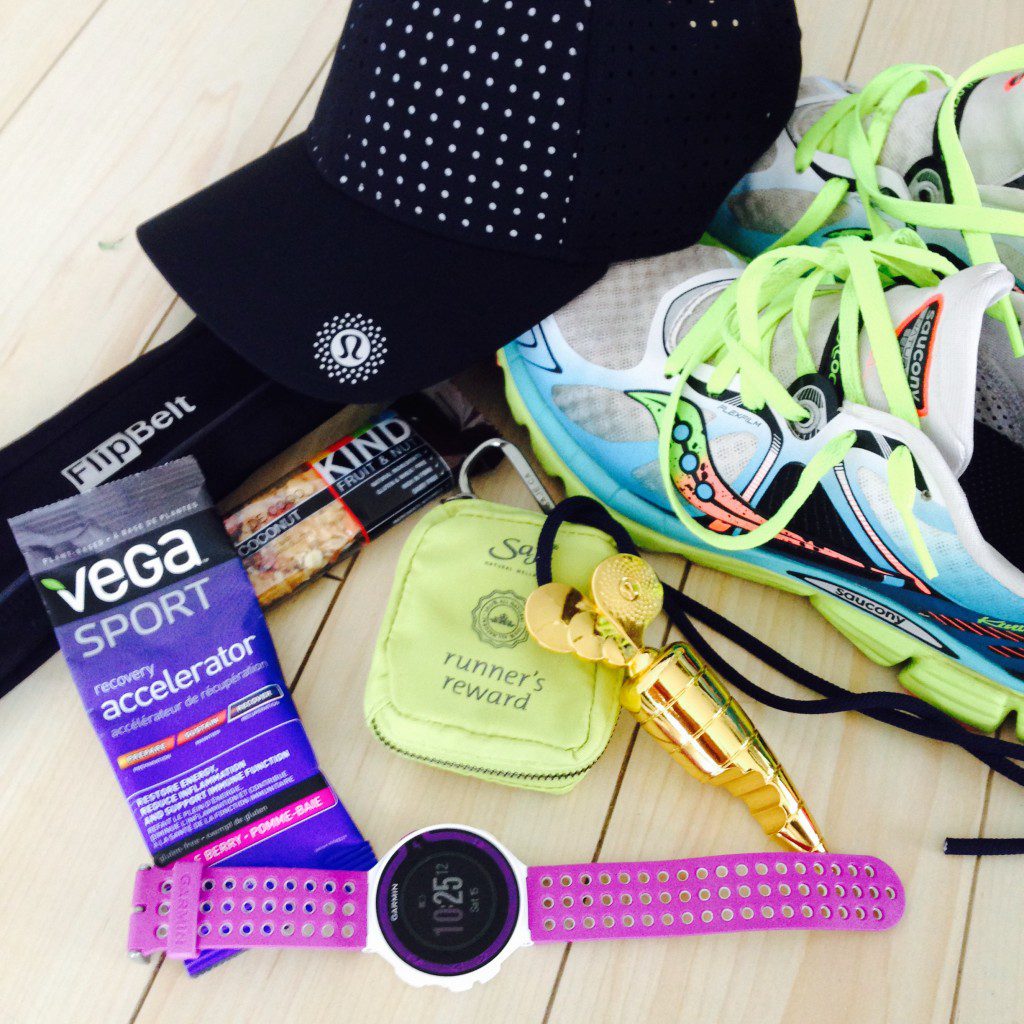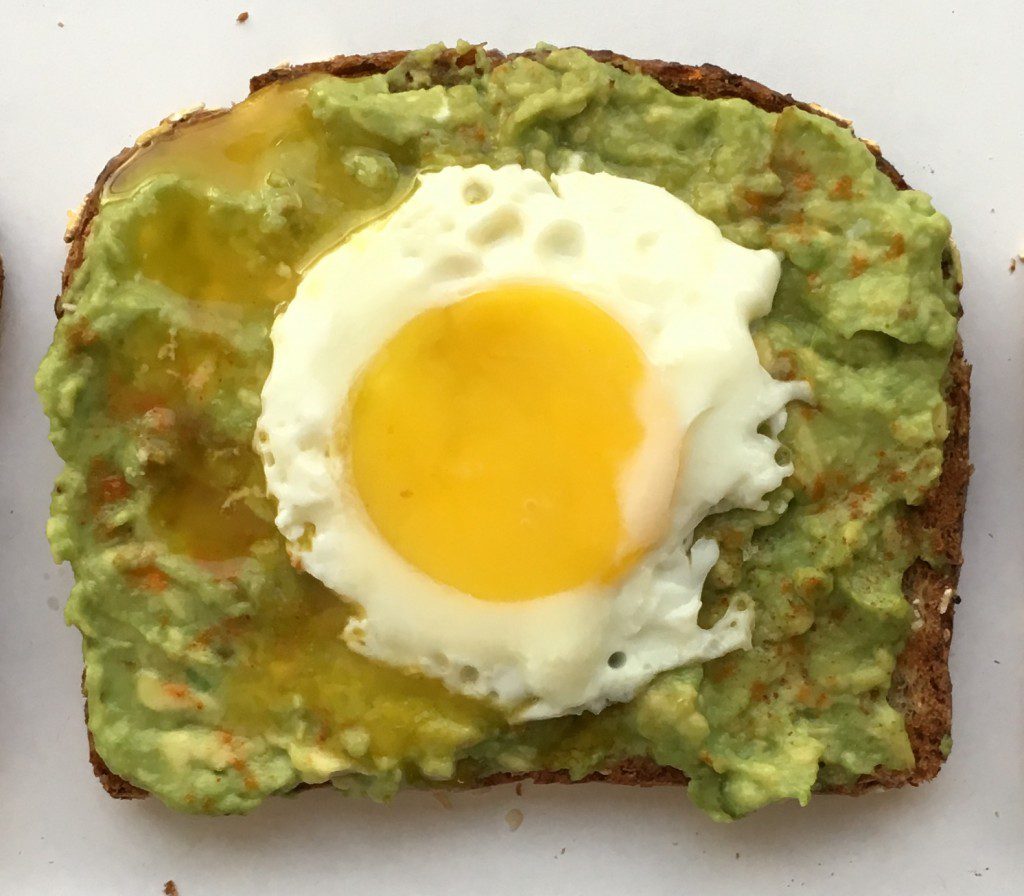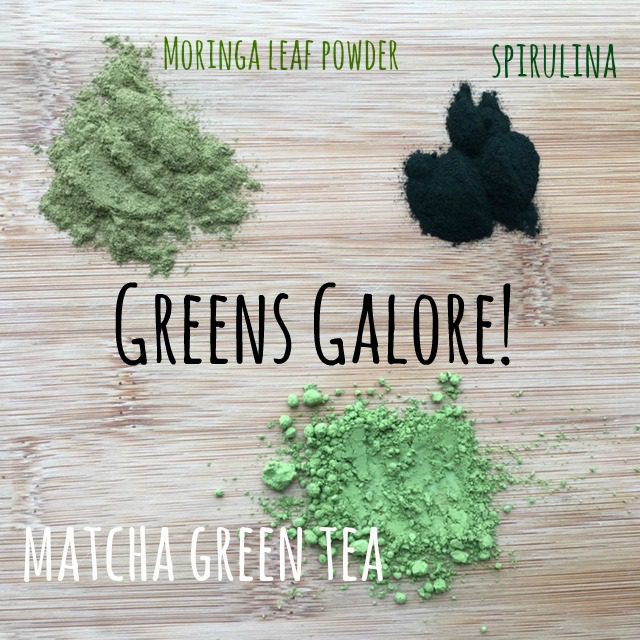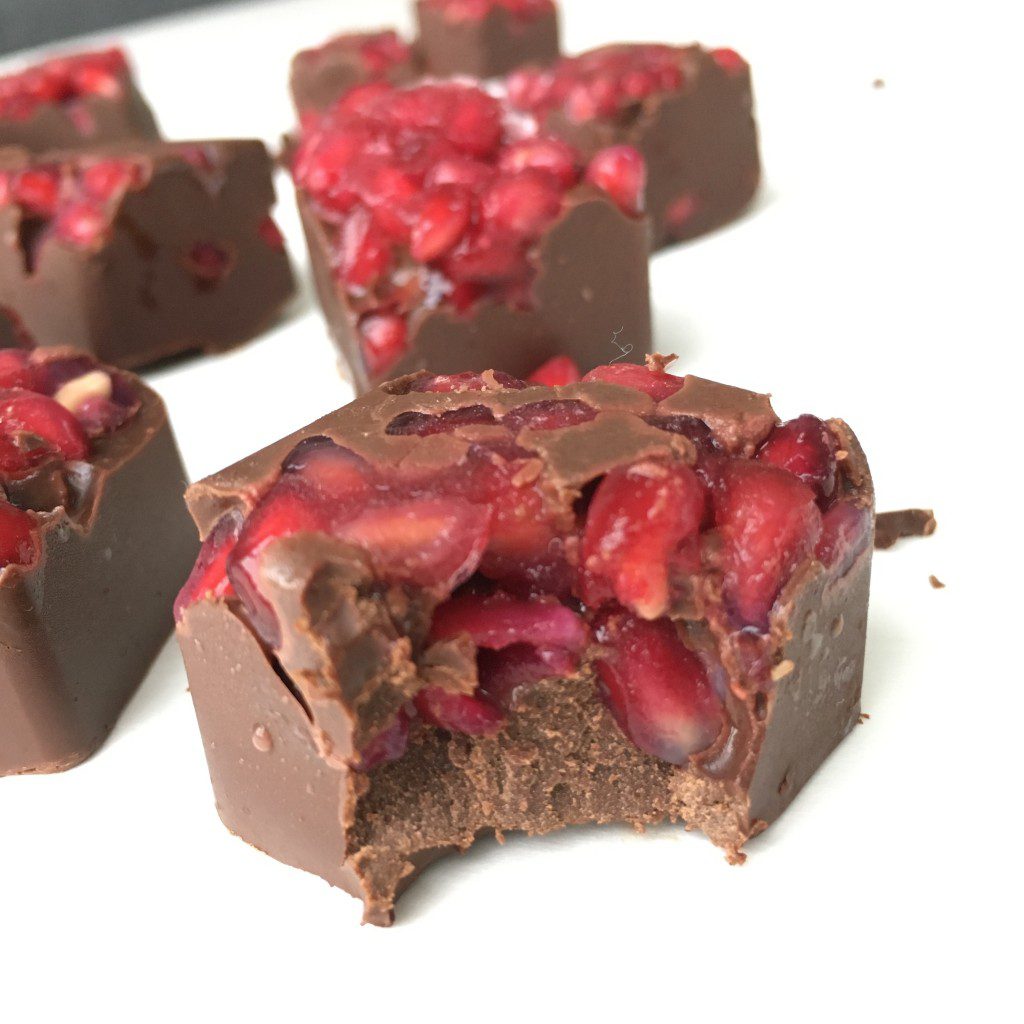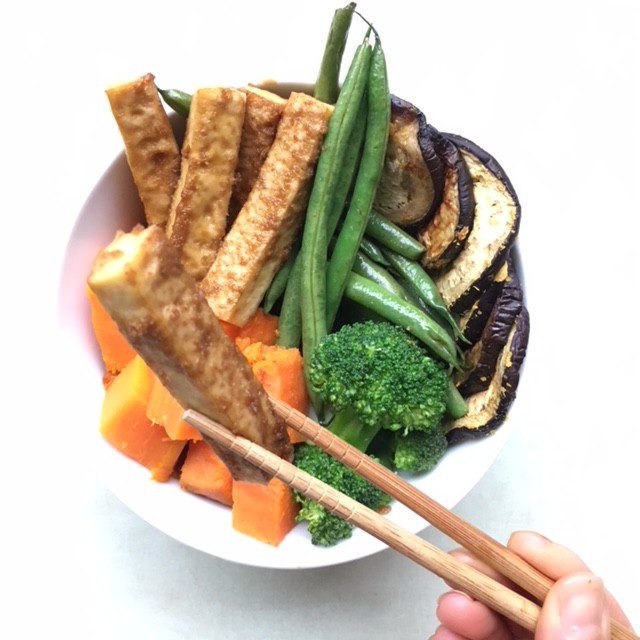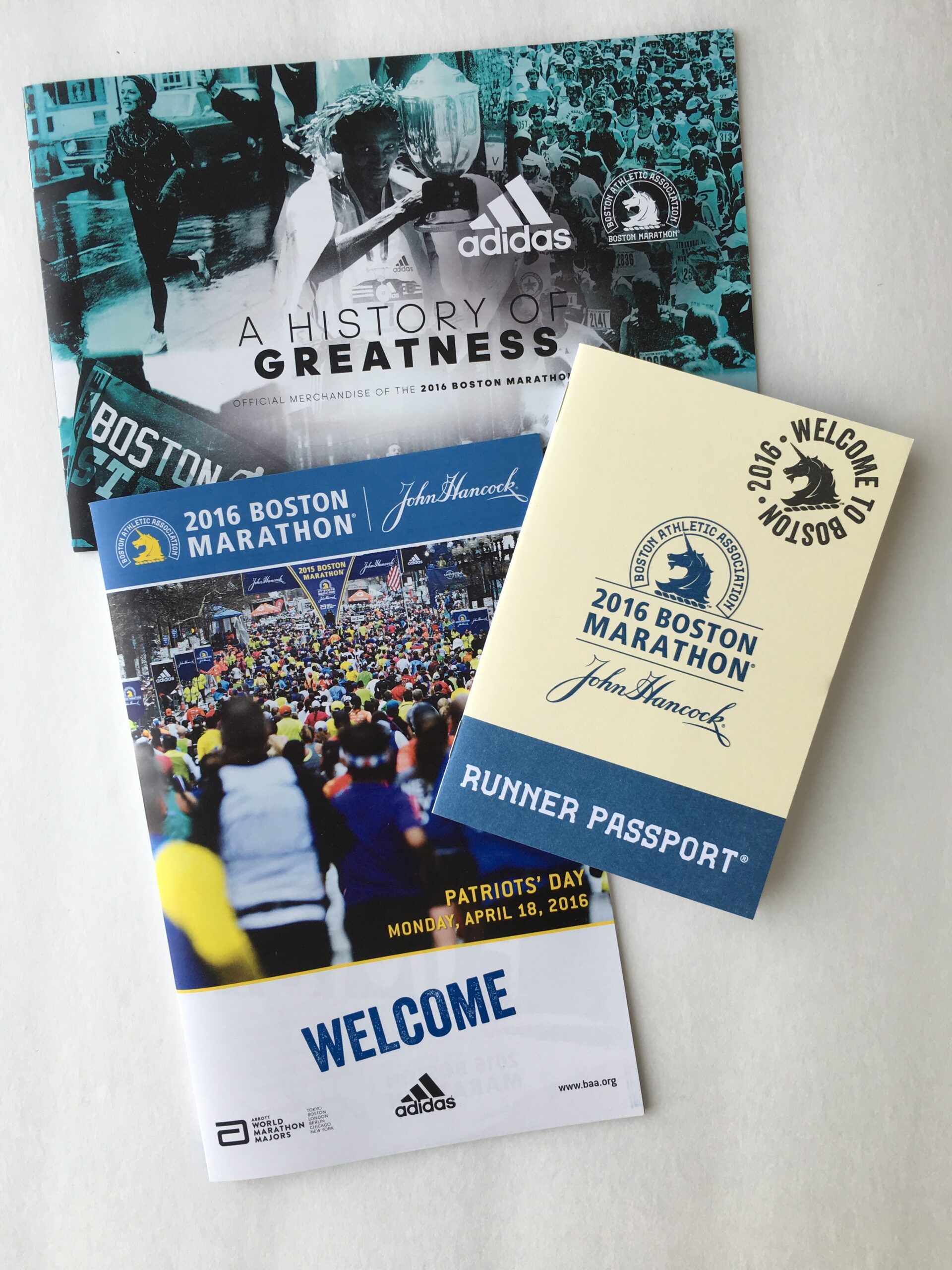TIP#1: Train your diet as you do your fitness and running.
Why does good nutrition matter? Think of your body like a luxury vehicle. In order for your ‘car’ to perform at the optimal capacity, you need to pay for premium fuel. That being said, you don’t need to spend a fortune on organic groceries, but rather think about the overall quality and combination of foods that you’re putting into your body. Well planned, balanced meals that combine lean protein, whole grains and brightly coloured fruit and vegetables will result in better recovery, reduce inflammation and may even help you run faster – who wouldn’t want that?!
TIP#2: The “Golden Rule” of sport nutrition – never try anything new or unfamiliar on race day.
This is where being being a creature of habit can actually help your run performance. Start practicing with different food combinations to see what works and what does not during training. You don’t want to find out midway through the race that your delicious new granola and yogurt combo is sending you directly to the porta-potties! Keep in mind that we are all different and what works for one person, may not work for another. Have an attack plan for food and hydration the day before, pre-race, during (gels, sport drinks etc.) and post-race.
TIP#3: Start ‘carb loading’ the day before a half marathon
Carbs are the primary fuel source for our muscles and are stored in our muscles as glycogen. This will create some water retention, so if you wake up a few lbs heavier, this is normal! Runners will reap the benefits of carb loading for any event over 90 minutes. Even if you’re a very fast runner and plan to finish the half marathon in less than 90 minutes, it is still recommended to up your carbs in the 24 hours leading up to the race. Carb loading for a half marathon is different than a full marathon in terms of the length of time needed to start increasing carbohydrates. For the half, focus on eating a larger carbohydrate-rich lunch the day before rather than making dinner the heaviest meal of the day. This leaves your body more time to process and metabolize your food, leading to better sleep and digestion.
Here are some examples of carbohydrate-rich meals that could be eaten for lunch or dinner:
- Roasted Salmon or White Fish (Basa), baked yams/sweet potato and broccoli (dark greens)
- Quinoa Salad with roasted veggies and lentils
- Pasta (regular, whole grain or gluten free – use what you’re familiar with) topped with grilled chicken or turkey in a zucchini, pepper and mushroom marinara sauce
- Crystal’s “Crispy Tofu Strips” paired with honey mustard (with turmeric), spinach salad, roasted cauliflower and root veggies (squash, beets, turnips, carrots etc.)
How many carbs do you need during this time? Most research points to 7-10g of carbohydrates per kg body weight. This is A LOT of carbohydrates and many runners are unable to achieve these values without significantly increasing their overall calories.
This means that a 150 lb (68.2 kg) runner would need 477g carbohydrates (1900 calories in carbs alone!). If you are a numbers person and interested in tracking your macros (carbs, protein, fats etc.), use an app like My Fitness Pal to get a sense of where you’re at. (www.myfitnesspal.com)
BOTTOM LINE: Think of your food as FUEL and focus on whole fruit (tart-cherry, green juices and coconut water are options to up the carbs), grains, starchy vegetables with lean and light, familiar proteins (plant or animal based). Avoid super high fibre, high fat or heavy rich meals – save the nachos, steak and frites or pizza for post race!
TIP#4: Plan your pre-race meal ahead of time
Some of the pre-race meals that work well for myself and my clients:
- Large flakes oats (1/3-1/2 cup) cooked with water, topped with banana or blueberries and almond milk (chia or hemp seeds are optional depending on tolerance)
- Whole wheat or gluten free toast topped with peanut butter and banana (thin spread) – **TRY PB2 powdered peanut butter
- Medjool dates (2-3) with 1 Tbsp nut or seed butter (or PB2)
- Familiar smoothie, shake or GU gel
- Mix frozen banana chunks with PB2 and almond milk
- Matcha
- COFFEE may actually enhance your race performance as long as it doesn’t cause you any GI stress (i.e.. going to the bathroom). Trial coffee prior to some of your training runs to see if it has any impact for you. Alternatively, various types of tea and especially green MATCHA TEA is a fantastic option for a quick energy boost.
- VEGA has some sport specific products that include a pre-workout energizer, electrolyte hydrator, gels and a post-workout recovery accelerator. They are well formulated for runners and athletes. Although not necessary, these type of products may provide an energy boost. The recovery accelerator includes turmeric which is well known for inflammation reduction among many other health benefits.
TIP#5: Hydration before, during and after is critical.
Aim for at least 1-2 cups of water within the hour of racing. On a day to day basis, monitor your urine colour to determine your hydration status. You want to aim for a lighter pale colour. As soon as the urine starts to become darker, start to up your fluids! Sometimes our thirst is not the most accurate way to determine our hydration needs. During the race aim to take water and/or sport drink at most aid stations. Ideally drink 1/2 cup fluids every 15-20 minutes.
In terms of recovery, chocolate milk is still considered one of the best options as it conveniently packages water (it’s over 80% water), protein, carbohydrates and electrolytes in the 3:1 ratio that we’re seeking post-race to aid in repairing, refuelling and rehydrating tired muscles.
I hope this provides a bit of insight and food inspiration.
If you have any questions feel free to e-mail me at crystal@crystalhiggins.com
